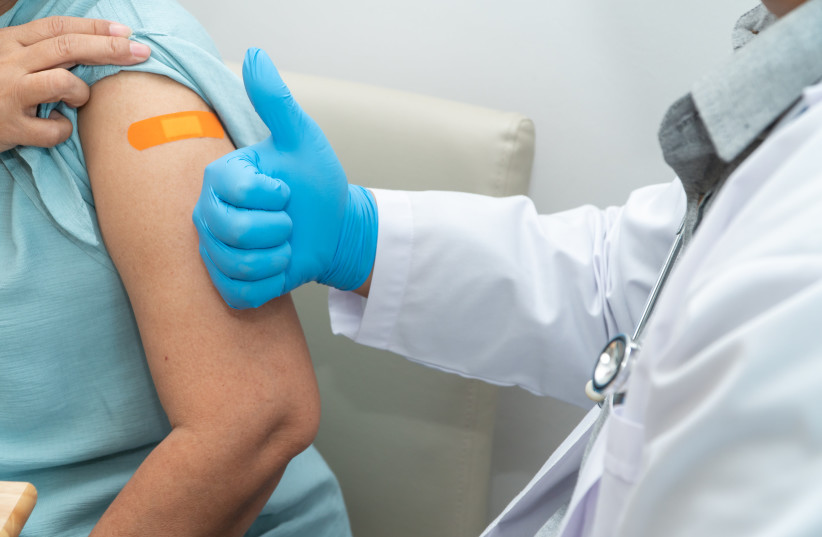After the United Nations Children’s Fund (UNICEF) warned about a global trend of parents’ reluctance to take youngsters for routine vaccinations, public health officials in the Health Ministry met to discuss the situation in Israel.
At the Wednesday meeting in Jerusalem, it was revealed that 23% of parents believe their children “get too many vaccinations.” The urgency of getting a series of COVID-19 vaccinations in the last two years is largely responsible for the phenomenon. So far, only about 230,000 Israelis have received flu shots, even though the vaccines became available earlier than usual, they are free and easily accessible at all health fund clinics and the ministry has warned of the danger of a combination of COVID-19 infection with the flu.
Last year, the health funds had to throw away tens of thousands of flu vaccine doses because their members did not come for the shot, which is usable for one year only.
The ministry discussion was attended by representatives from the entire health system, including the Israel Pediatricians Association, health fund physicians, Tipat Halav (literally, “Drop of Milk” as well-baby family clinics are called) clinic staffers, doctors from the district health bureaus throughout the country and voluntary organizations, as well as youth representatives who voiced their views.
The participants came up with solutions tailored for each sector in the population and discussed ideas for strengthening and improving the rate of routine children’s vaccinations. These included increasing the level of trust, coping with fake news and making Tipat Halav clinics more accessible to the many different sectors that make up the population.

What did the survey discover?
According to a recent ministry survey of Israeli parents’ attitudes, most parents of children from birth to 13 years (86%) said their children have undergone all of the recommended vaccinations, while 11% said they had gotten only some of them.
There are 9% of parents in the general Israeli population who admitted they were very or somewhat hesitant about their children’s vaccinations. The figure jumped to 16% in the Bedouin sector and 5% among Arabs and ultra-Orthodox Jews, while 60% of parents said they weren’t hesitant at all.
Nevertheless, 72% of parents expressed confidence in the recommendations of ministry officials regarding the importance of children’s vaccinations – a figure similar to that found in a 2016 survey. A similar proportion (69%) believe the benefits of vaccines outweigh their possible risks.
Dr. Sharon Elroy-Preis, head of the ministry’s public health division, said, “We initiated a day for considering the problems related to routine immunization, following the global concern about a decrease in the vaccination rate. Routine vaccines are one of the most significant tools in protecting the health of all of us and have succeeded in preventing unnecessary illness and death since they were introduced many decades ago. The State of Israel has [relatively] high rates of immunization, and it is important for us to maintain it to protect the most precious of all – our children.”
“The State of Israel has [relatively] high rates of immunization, and it is important for us to maintain it to protect the most precious of all – our children.”
Dr. Sharon Elroy-Preis
Last year, according to UNICEF, 25 million children throughout the world did not get all their routine vaccinations. This is the biggest drop in a generation. The main reasons given are the pandemic and its closures, supply-chain disturbances, diversion of medical and nursing human capital and more.
A report by the World Health Organization (WHO) urges governments to address the issue of routine vaccinations since that is one of the core issues of countries’ national resilience.
Also, already in 2019, the WHO declared that vaccine hesitancy was one of the 10 leading threats to public health. Today, it is clear that the threat is greater, WHO officials said.
